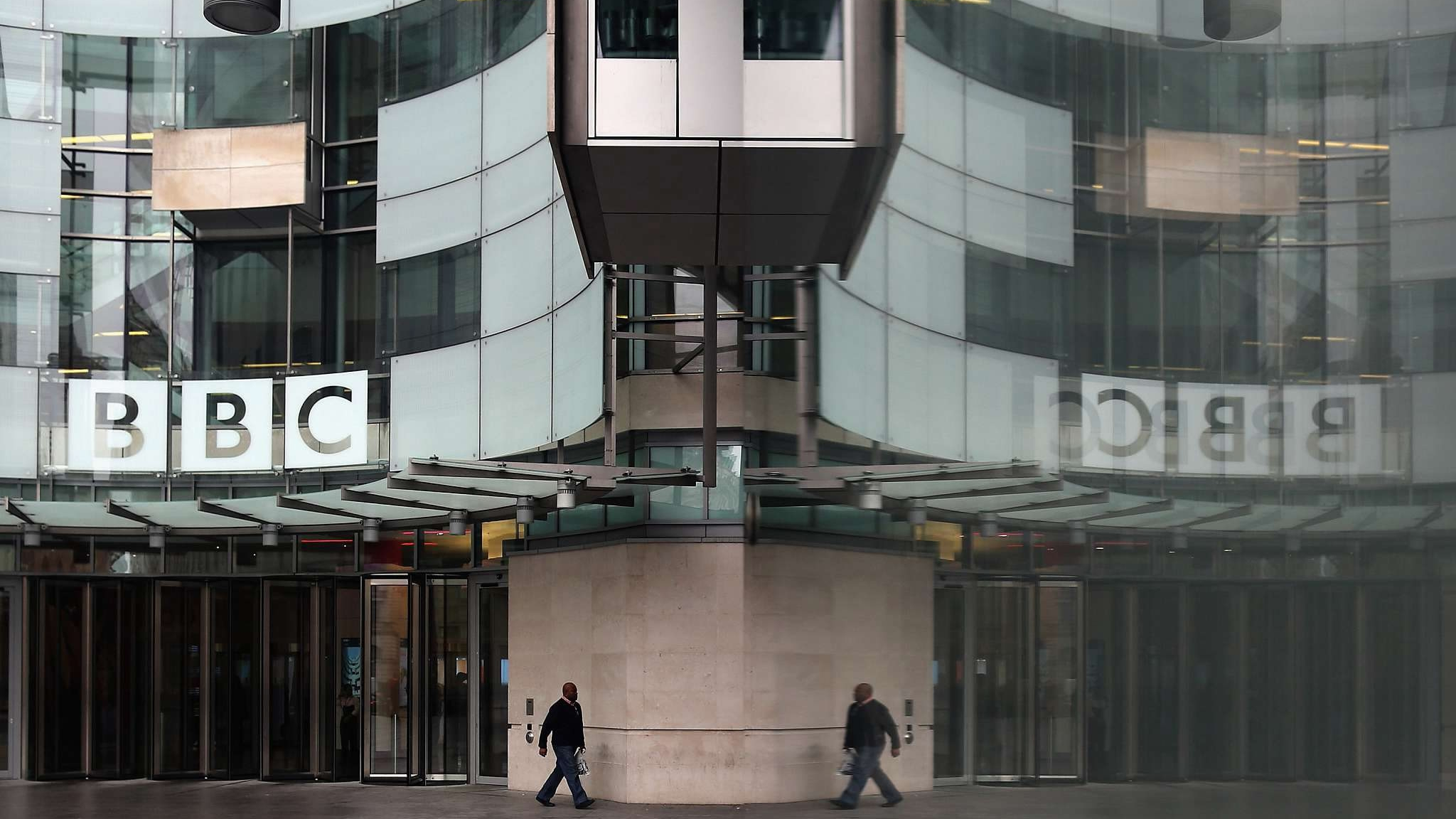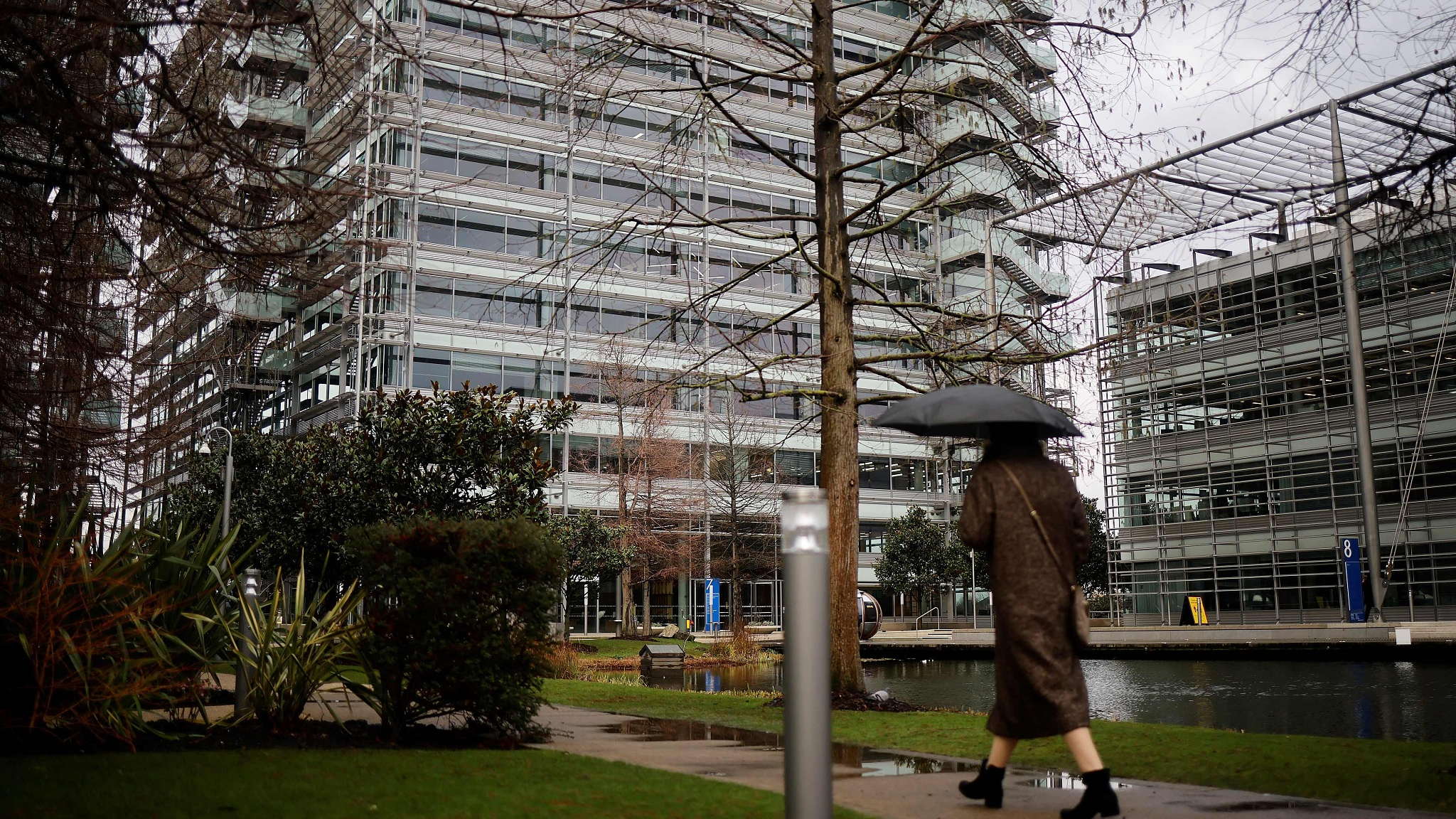
A file photo of the BBC Broadcasting House in London, UK. /VCG
A file photo of the BBC Broadcasting House in London, UK. /VCG
Editor's note: Bobby Naderi is a London-based journalist and guest contributor in print, radio and television and a documentary filmmaker. The article reflects the author's opinions and not necessarily the views of CGTN.
On March 31, the BBC's Beijing correspondent John Sudworth left China following alleged pressure and threats from the Chinese authorities. Sudworth, who has won awards for his reporting on people from the Xinjiang Uygur Autonomous Region, left Beijing with his family.
The senior correspondent told BBC Radio 4 that he had had to leave after nine years in Beijing, as it was "too risky to carry on." He added that "the BBC has faced a full-on propaganda attack not just aimed at the organization itself but at me personally across multiple platforms."
However, Chinese Foreign Ministry spokesperson Hua Chunying said during a regular press conference that Sudworth left without giving any reason to the ministry. He also did not go through the formalities as a foreign correspondent.
"We've heard that some individuals and entities in Xinjiang are planning to sue him because his fake reports on the region have damaged their interests," Hua told reporters. "Neither Chinese departments nor any local governments in China threatened him. If there's any evidence that he's under threat, he should have called the police for protection."
Without taking sides, Sudworth's farce should prompt renewed debates over ending the unnecessary media standoff between the UK and China, including removing barriers to China's international news network CGTN to carry out normal work in the UK. Put simply, the media spat threatens the common good and public interest.
The pointless dispute relates to a series of BBC reports on Xinjiang, COVID-19 prevention and control efforts, which China deems to be fake reporting and biased. In February, China barred BBC World News from airing in the country and revoked its license for a year for biased UK-government funded news.
This came after a similar decision by Ofcom to revoke the license of the Chinese broadcaster CGTN to air programs in the UK after its investigation concluded that the Star China Media Limited, the license holder for the CGTN service, did not have editorial responsibility for CGTN's output.
That doesn't change the fact that this is still a world that now has many closely linked news networks and channels. It is important to emphasize that the current media dispute cannot be allowed to enter the realm of foreign policy, as it would adversely impact bilateral relations. It would undermine the long-established relations in business and trade, security, governance, innovation, culture, science and academia, and many other aspects of bilateral cooperation between China and the UK.
In the age of globalization and social media, traditional communications are no longer the same. It is no longer easy or acceptable for an international correspondent or prestigious television news network to fabricate a report on a certain topic without experiencing some national or international backlash.
So, it's an attitude and spirit of cooperation that should permeate all conversations between international news networks like CGTN and the BBC to join forces to stay relevant. They can enhance cooperation between the two countries, overcome the absence of understanding in bilateral relations and search for shared values and principles in trade, law, culture and education.

The office block that houses the offices of CGTN Europe in Chiswick Park, west London, UK, February 4, 2021. /VCG
The office block that houses the offices of CGTN Europe in Chiswick Park, west London, UK, February 4, 2021. /VCG
Media outlets are not supposed to define and promote "British" identity against "Chinese" identity or vice versa based on representing deep-rooted contrasts and oppositions regarding delicate issues such as human rights and the pandemic. They are supposed to help construct and strengthen the reality of cooperation, including helping people to understand and accept the prevalent social norms and the institutions that embody them.
Augmented levels of tactical disinformation and bias about domestic policies and laws only undermine attempts to protect bilateral cooperation and ties.
This is not to say that media outlets must not report on diplomatic discussions and foreign policy controversies in stories that align with national, political and cultural values or provide sympathetic narratives and stories that support rather than question their governments' diplomatic initiatives. They can contribute their own viewpoints and disagreements to the mix of information and opinions that shape broader public conversations.
Since competing ideas also shape the course of events on the other side of the border, national perspectives and arguments also need to be conducted not merely through the face-to-face discussions and negotiations of political officeholders and diplomats but also through factual narratives and concerns that involve the opposite sides. If viewpoints are shifted from a national/biased to a bilateral/mutual perspective, there is a higher likelihood of achieving win-win success in media reporting on both sides.
Despite the ideological and political differences, there is enough room for media outlets in China and the UK to play a constructive role in mitigating the resentment that has surrounded the two countries for some time now.
They might not readily agree, but they can start cooperation with relatively easier issues like art, culture and academia before slowly building and moving to more serious topics that consolidate the China-UK relations and dialogue.
It's about boldness, integrity and the fight for the common good. If they continue in that spirit, they can also see that their global audience's sentiments are also important. There is immense power if they strive for cooperation based on mutual respect and trust and exercise their influence to promote the common good beyond their networks and borders and in all ramifications.
(If you want to contribute and have specific expertise, please contact us at opinions@cgtn.com.)

